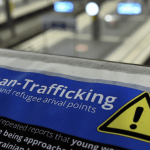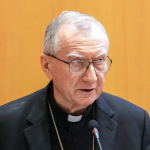A compilation of new data by the Center for Applied Research in the Apostolate (CARA) at Georgetown University sheds light on the countries around the world that have the highest Mass attendance numbers.
CARA researchers used data from the World Values Survey (WVS), a major international study of religious belief that has been conducted for decades, to examine 36 countries with large Catholic populations. Of those countries, the researchers ranked them by the percentage of self-identified Catholics who say they attend Mass weekly or more, excluding weddings, funerals, and baptisms.
According to the data, Nigeria and Kenya have the highest proportion of Catholics who attend Mass weekly or more, with Nigeria as the clear leader. Ninety-four percent of Catholics in Nigeria say they attend Mass at least weekly. In Kenya, the figure was 73%, and in Lebanon it was 69%.
The level of attendance in Nigeria is notably high given the high number of violent attacks against Christians across the country in recent years. Terrorist incidents inside Catholic churches are not infrequent; notably, in June of last year, gunmen believed to be Islamic extremists opened fire on Catholic worshippers attending Pentecost Mass at St. Francis Xavier Catholic Church in southwestern Nigeria, killing at least 50.
More than half of all Catholics attend weekly or more in the Philippines (56%), Colombia (54%), Poland (52%), and Ecuador (50%). But in 29 of the 36 countries examined, fewer than half of self-identified Catholics attend Sunday Mass. The researchers acknowledged that the use of self-reported Mass attendance numbers could inflate the figures slightly, meaning actual attendance numbers could be, in reality, slightly lower across the board.
The WVS data did not include the U.S., but CARA’s polling data indicated that the percentage of Catholics in the United States who attend Mass weekly or more is 17%, even though more than three-quarters of U.S. Catholics consider themselves to be a “religious person.”
Continuing down from there, the lowest levels of weekly attendance were observed in Lithuania (16%), Germany (14%), Canada (14%), Latvia (11%), Switzerland (11%), Brazil (8%), France (8%), and the Netherlands (7%).
“One might assume that the more religious Catholics are in a country, the more likely they are to be frequent Mass attenders,” the CARA researchers wrote.
“Yet, there is not a strong correlation between the numbers identifying as a ‘religious’ Catholic and frequent Mass attendance.”
Countries with a higher Gross Domestic Product (GDP) per capita had lower levels of Mass attendance and vice versa, they noted.
“While there seems to be a disconnect between identifying as a religious person and attending Mass weekly there is a third factor that may explain the comparative distribution of both of these attributes. If you’ve looked closely at the countries you might have noticed some economic clustering,” the CARA researchers wrote.
“In this small sample of countries, we can surmise that Catholicism is strongest in what is often called the developing world where GDP per capita are lower, while it appears to be contracting in wealthier ‘developed’ countries,” the researchers concluded.
“The precise mechanisms associated with economic development and wealth that are impacting Catholics’ participation in the faith and identification as religious are unclear. Whatever they are, they matter significantly.”



